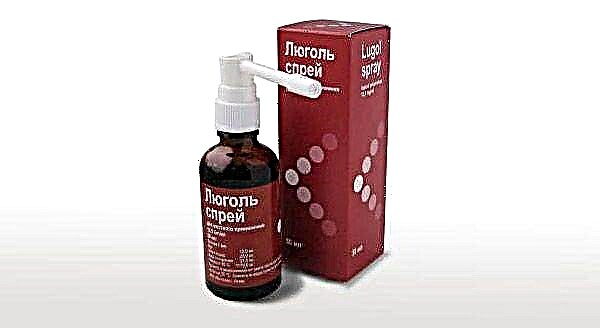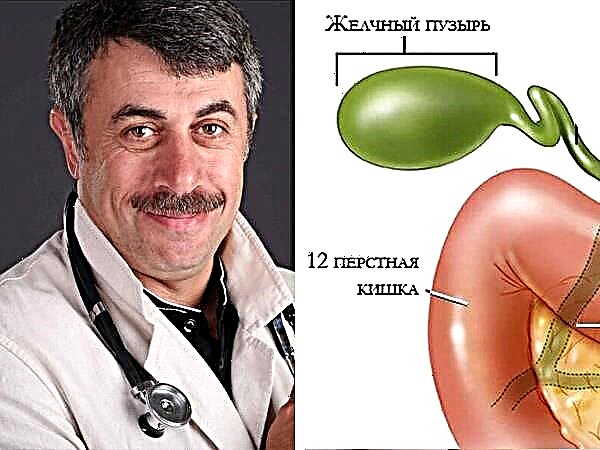With the birth of a child, the mother's life changes dramatically. Daily activities (sleeping, eating, walking, resting, etc.) should now correspond to the new schedule. Obviously, mom gets very tired in the first months, does not get enough sleep. In order to somehow make up for the lack of energy and cheer up, a woman resorts to the simplest and most affordable option - the consumption of coffee drinks. This raises a logical question: is it possible for nursing mothers of newborns to have coffee? If so, how safe is it and in what quantities is it acceptable? This article will give answers to these and other relevant questions for nursing mothers.

Coffee is a controversial product when it comes to breastfeeding
Is coffee possible for nursing mothers
According to experts, drinking coffee in reasonable quantities and in accordance with certain recommendations is acceptable in this case. The drink will not harm the baby if the mother drinks it a few hours after eating.
Important! Excessive coffee consumption can negatively affect breastfeeding.
The effect of the drink on the adult body
It is known that coffee has a direct effect on the circulatory system, namely, it increases blood pressure by 10 units on average. During lactation, this property can be very useful. In addition, the drink stimulates the nervous system and increases physical activity. As a result, a person feels an influx of energy and fresh strength. Caffeine also helps speed up the metabolism, thereby helping to lose extra pounds, which is especially important for women who have recently given birth, seeking to return to their previous shape as soon as possible.
Another effect that coffee has on the body of an adult is a diuretic. There are both positive and negative aspects here. Frequent emptying of the bladder helps to cleanse the body, prevents the formation of stones, as well as the occurrence of infectious diseases. On the other hand, abuse of coffee provokes dehydration, as a result of which the blood begins to thicken, blood clots form in the vessels and stones in the kidneys and ureters.
The disadvantages of this drink include the following:
- Both natural and instant coffee are addictive;
- Caffeine negatively affects the work of a diseased heart;
- The drink increases blood pressure, which is not always appropriate and safe.

Effects of coffee on the adult body
Effects of caffeine on a child
Coffee, entering the body of a newborn together with mother's milk, also has a certain effect on its systems. Caffeine is easily and quickly absorbed into breast milk, and more importantly, it is excreted from the newborn's body for a long time. Thus, if a woman drinks coffee often and in large quantities, the substances that make up it accumulate in the baby's body.
The rate of elimination of caffeine depends on the age of the child:
- In premature babies, this period is 65-103 hours;
- In three-month-old babies - up to 14 hours;
- Half-year-olds have about 2.5 hours.
The maximum caffeine content in breast milk is reached about 60 minutes after the mother uses it.
On a note. Expressing in this case will not give the desired effect. Until all the caffeine is removed from the mother's body, some of this ingredient will still be present in milk. The elimination process in an adult is about 5 hours.
So can you drink coffee while breastfeeding? It is highly likely that moderate consumption of this product will not have a negative effect on the child's condition and at the same time will enable a tired mother to tone up the body and get a tasteful pleasure from the drink.
Possible negative consequences
The presence of caffeine in the baby's body can lead to the following negative consequences for the baby:
- Increased nervous excitability;
- The appearance of anxiety;
- The occurrence of an anxiety state;
- Sleep problems;
- Skin rashes;
- Intestinal malfunction.
These factors in their totality become the reason that the child cannot rest normally, often cries, experiences stress, gets tired himself and tires his parents. A similar effect is possible if the mother drinks coffee too often and abuses its amount, while continuing the lactation process.
Replacing coffee during lactation
The most popular coffee substitutes that are suitable for nursing mothers and do not cause allergies in children are the following:
- Chicory;
- Herb tea;
- Barley coffee.
The last option is the closest to a coffee drink in terms of its taste. For the price, this product is much cheaper, in addition, it is characterized by several useful properties at once:
- Optimizes the functioning of the nervous system, blood vessels and heart;
- Improves the digestive tract;
- Stimulates blood circulation;
- Has a diuretic effect;
- It has a positive effect on hormones.

There are many options for replacing coffee.
Chicory - a golden alternative to coffee
In order not to risk the health of the baby, nursing mothers can replace coffee with such a popular product as chicory. It tastes a lot like the original product, but doesn't contain caffeine. For this reason, nursing mothers can safely drink it and at the same time not be afraid for the health of their child. To overuse the drink, of course, is not worth it - everything is good in moderation.
Chicory has a number of beneficial properties, namely:
- Strengthens the immune system;
- Improves metabolism and generally normalizes the work of the digestive tract;
- Cleans the body of toxins and other harmful substances (for example, "bad" cholesterol);
- Has an astringent effect;
- It has antipyretic, anti-inflammatory effects;
- Tones up the body;
- Improves the functioning of the urinary system;
- It has a choleretic effect;
- Has a beneficial effect on the work of the cardiovascular system, increases the level of hemoglobin in the blood;
- Helps relieve stress and at the same time invigorates.
Important! If the baby has skin rashes or other manifestations of an allergic reaction, as well as malfunctions in the digestive tract, chicory should be stopped. You can try again after 2 months.
Tips and tricks for moms
During lactation, coffee is not the best option for a nursing mother. However, if a woman nevertheless decided to pamper herself with this invigorating drink, then you should be more careful when choosing a product. You need to buy coffee only of high quality, produced by trusted manufacturers. It is advisable to purchase not roasted grains. If you are purchasing fried grains, then it is better to opt for a freshly ground product. It is also recommended to add milk or low-fat cream to coffee during lactation.
If you choose between a soluble and a natural option, then it is better to give preference to the second one (it has less caffeine, and the quality of the beans is much higher).
The authoritative pediatrician doctor Komarovsky spoke about the benefits and dangers of coffee during lactation. In his opinion, if the consumption of the drink does not affect the behavior and condition of the child, a woman can easily afford a few cups of an invigorating drink. In the event that the baby has any behavioral deviations or health problems (for example, an allergic reaction), you should give up coffee for a while.
Important! Dr. Komarovsky warns mothers against caffeine abuse, as this substance reduces the iron content in breast milk. This can lead to anemia in the infant. The doctor recommends limiting yourself to 2 cups of natural coffee a day, preferably with the addition of milk.
Bananas while breastfeeding
According to experts, if a nursing woman eats a banana with a newborn baby, this action does not threaten the health of the mother and baby. Of course, there are some restrictions, recommendations, caveats. So can bananas be eaten while breastfeeding a newborn?
The benefits of bananas
Among the useful properties of this product are the following:
- Efficient energy source;
- Improving the functioning of the digestive system;
- Strengthening the heart and blood vessels;
- Stimulation of the production of serotonin - a hormone of pleasure (thanks to this, a woman is in a good mood);
- Does not cause allergies.

Bananas are a less controversial product compared to coffee, but they also have a number of restrictions for the GW period.
The effect of bananas on lactation
Since the product has a beneficial effect on the mother's body, the breastfeeding process itself causes less stress and anxiety for a woman.
On a note. Bananas can be used as a complementary food for a newborn, especially if the child is constipated.
The opinion of pediatricians
According to Dr. Komarovsky, in the first 2 weeks after childbirth, products that can cause increased gas formation in the child should be excluded from the mother's menu. These include bananas, since during the HV period they have a laxative effect and provoke colic in the baby. You can eat bananas when your newborn is 2 months old. Thanks to the fiber and folic acid they contain, bananas contribute to a faster and more effective recovery of a woman's health.
The effect of bananas on a month old baby
The effect of this product on the baby during lactation directly depends on how often and in what quantity the mother used it during gestation. If the fruit was regularly present in the diet of a pregnant woman, then the child received it through the umbilical cord, as a result of which he had time to form a susceptibility to the product. In this situation, you can eat bananas during lactation without fear, but in reasonable quantities (one or two per day). In the event that the fruit is unfamiliar to the child, then it should be introduced into the mother's diet gradually, starting with several slices. At this time, it is important to observe the baby's reaction: if he does not have allergies during lactation, then you can safely increase the dose (but again gradually). In some cases, a child may have a negative reaction to this product with hv.
Possible side effects
The negative consequences can be:
- The appearance of a rash in a child;
- Restless baby behavior;
- Frequent crying;
- Constipation or loose stools;
- Colic.
In such cases, you should exclude the product from the menu for 2-3 weeks, then try again, gradually increasing the amount.
On a note. If the allergy is mild, it is not necessary to completely abandon bananas. You can replace a raw product with a baked one or use it as an additional ingredient in the preparation of regular dishes (cheesecakes, cookies, etc.).
Allergy in a newborn with hv
It is important to understand that there is no allergy to breast milk. Negative reactions that occur in a baby during lactation can be caused by those substances that in small quantities enter breast milk after a nursing mother eats. What can be an allergy in infants with HV, will be discussed further.

Food allergy in an infant
What may be allergic
Most often, a child's allergy occurs to cow's milk proteins. This includes foods such as whole milk, cheese, cottage cheese, butter, as well as veal, beef.
A negative reaction also often occurs to the following foods:
- Eggs, nuts, fish, soy;
- Caviar, honey, coffee, citrus fruits, pineapples, cocoa, chocolate;
- Spicy, salty dishes, canned food, spices, smoked meats;
- Flavors, colorants, preservatives;
- Sauerkraut, spinach;
- Onions, garlic, radishes and other foods that irritate the lining of the stomach and intestines.
Allergy mechanism
Food allergy is the reaction of a newborn's body to those substances that enter breast milk after the mother's body has absorbed food. Various food additives penetrate most easily, but they often cause only a pseudo-allergic reaction. In most cases, protein molecules provoke true allergies, especially if the child has a predisposition to such a reaction. At the same time, food additives can act as a factor that enhances the negative state.
Signs
Food allergy is characterized by the following symptoms:
- The appearance of a rash on the body, face (cheeks);
- Itching;
- Peeling;
- Sweating;
- Swelling;
- Diaper rash;
- Redness;
- Disorders of the digestive tract: vomiting, constipation, colic and, as a result, frequent crying and restless behavior.
Why is an allergic reaction dangerous?
Allergy with hv in a newborn child is dangerous in that it can have a negative effect on various systems of an insufficiently strong organism:
- Upper respiratory tract (persistent runny nose, in very rare cases, anaphylactic shock);
- Lower respiratory tract (wheezing, coughing may appear);
- Eyes (conjunctivitis, redness, swelling);
- The effects on the gastrointestinal tract can manifest as constipation, colitis and lead to poor absorption of nutrients;
- Skin (dermatitis - eczema, urticaria);
- Behavior (poor appetite, trouble sleeping, anxiety, moodiness, crying).
So, an allergy has arisen in a newborn while breastfeeding, what to do in this case? If the symptoms are mild, you can try to limit the exposure to the allergen, that is, stop consuming a particular product. You should also consult a doctor to find out the exact diagnosis and get the necessary treatment (if a particular symptom manifests itself so much that it needs to be treated). If the symptoms are severe, then you must definitely call an ambulance.
Diagnostics
It is important for a nursing mother to find out how to determine what the baby is allergic to with guards. The diagnosis is based on the results of laboratory tests, an allergic history, and a study of the clinical picture.
When collecting the necessary information, the following points are studied:
- Possible allergens;
- The nature of the allergic reaction;
- Clinical symptoms, their severity;
- The presence of concomitant diseases;
- Family history.
In the process of diagnosis, you should contact the following specialists:
- Nutritionist;
- Dermatologist;
- Gastroenterologist;
- Allergist-immunologist.

Allergy tests
Mom's preventive nutrition
During the period of breastfeeding, a woman should discard foods that provoke allergies. It is also very important to monitor the correct nutrition during pregnancy (you need to exclude strawberries, citrus fruits, chocolate, milk). These same foods are not recommended for use during breastfeeding. You should also limit the consumption of peas, fish, eggs, millet, chicken meat.
During lactation, it is very important to correctly formulate a diet for a nursing mother. There are controversial products that are allowed to be consumed at this time, but only in limited quantities and with extreme caution. These include, in particular, coffee and bananas.



